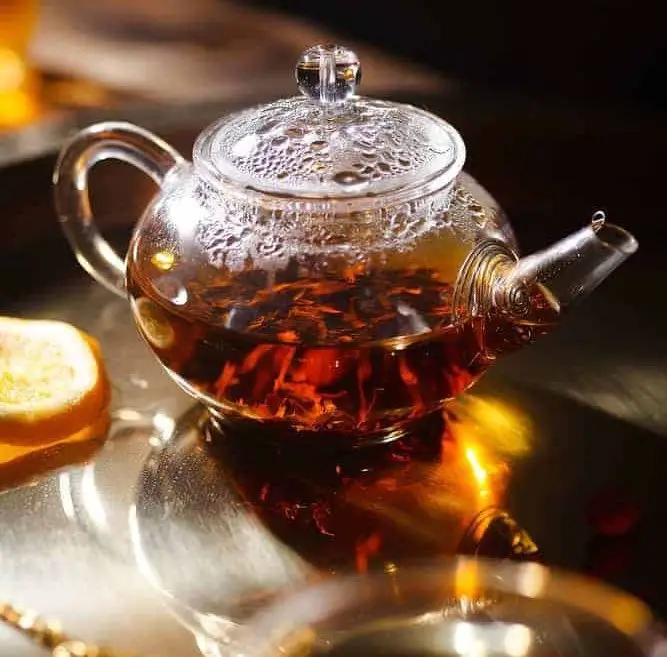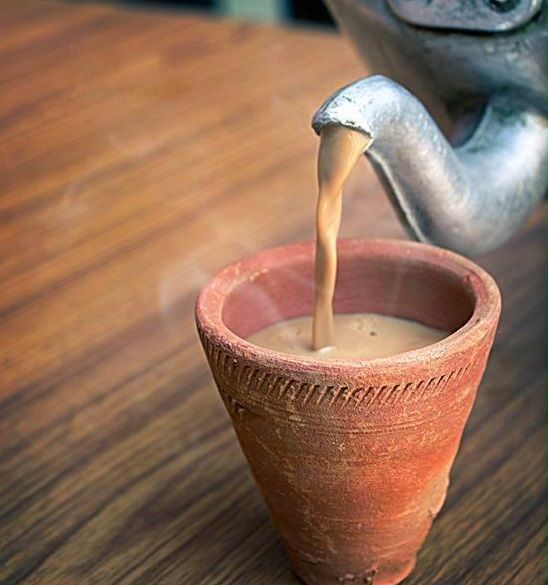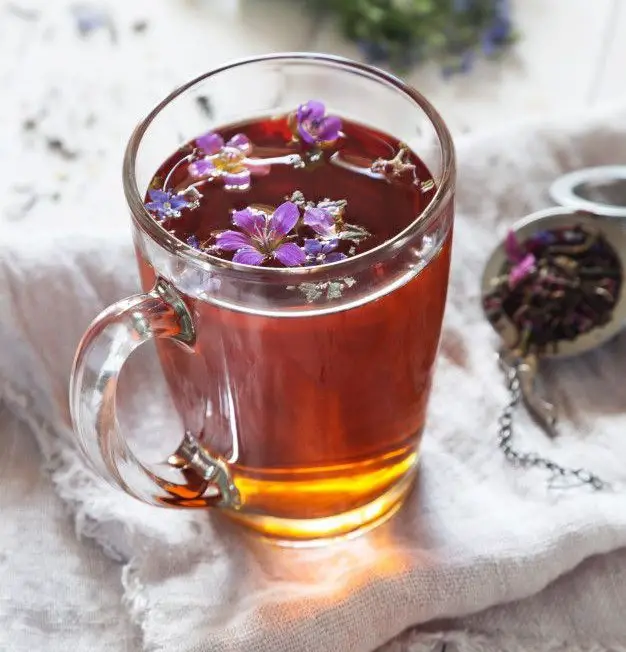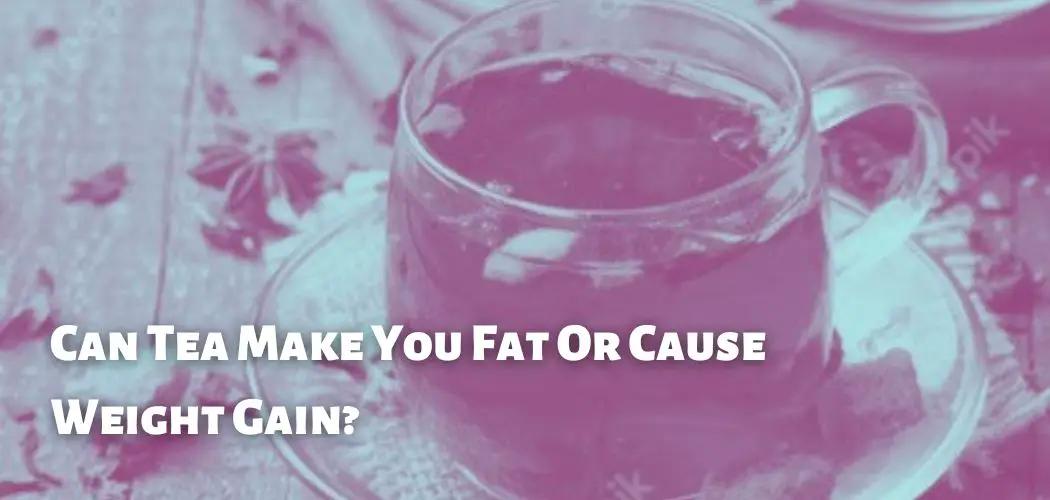Almost everywhere, people consume tea. There are several hundred kinds, including white, black, green, and oolong.
In tea, flavonoids are present in high levels, which are basically health-promoting chemicals.
They are believed to lessen inflammation and protect against diabetes and cardiovascular disease.
Contents
Helps With Weight Loss?
Every day, a cup of tea will not help you return to your slim jeans. According to research, in conjunction with a healthy diet and regular exercise, tea may help you lose a very small amount of weight.
Consider that if you replace your morning latte with a cup of tea with lemon, you will save about almost 298 calories each day.

Catechins, which is a kind of flavonoid often found in tea, may increase the body’s metabolism and fat breakdown rate. And the amount of caffeine present in teas may improve your energy expenditure, resulting in increased calorie burning.
These two substances probably work best together for any potential loss in weight.
Tea may help you maintain your weight loss by reducing the normal metabolic slowdown that occurs following weight loss.
Recommended Types of Tea By Nutritionists
All forms of tea are derived from the same plant, Camellia sinensis. However, the leaves are treated differently, making each tea unique. The following are some of the recommended types of tea by nutritional experts.
Black tea
This is the sort of tea that is commonly offered and used to prepare iced tea in Chinese restaurants. It is fermented, a procedure that causes chemical changes and frequently boosts its caffeine level.
It has a robust flavor. It is yet unclear whether it helps or not with weight loss. However, the research conducted on rats suggests that polyphenols present in this tea may inhibit fat absorption in the human intestines.
Be mindful of what you add to this brew. Consuming it the traditional way, with some milk, may diminish its fat-blocking properties.
Green Tea
Typically, green tea is not subjected to fermentation. The leaves are only heated and then manually crushed. It contains EGCG, the most powerful kind of catechin, in abundance.
Several studies have demonstrated that people who ingested an EGCG-rich green brew extract or had catechin-enhanced version of it saw modest weight loss.
To obtain the same quantity of EGCG as utilized in the study, you would need to consume upto seven cups of this standard drink each day.
The extracts present in this drink may be hazardous. Although uncommon, some weight loss pills using high doses of tea extracts have been associated with severe liver damage.
Oolong Herbal Tea
It is produced by sun-drying the tea leaves. It is an abundant source of catechins.
According to a study, more than two-thirds of obese participants who consumed oolong tea every day for upto six weeks shed more than 1 and a half pounds and reduced their abdominal fat.
White Tea
White tea has the least processing, and its flavor is mild and sweet. Is it delicious and good for the waistline as well?

Well, according to a study, white tea accelerates the breakdown of current fat cells and prevents the development of new fat cells. However, it is unclear whether it will have likely effects on the human body.
Our favorite place to buy tea from has to be BeeinspiredGoods. Do check them out.
Is It Fattening?
Tea is nowadays made into a sweetened sugar drink by adding teaspoons of honey, or sugar which can cause you to gain weight if consumed in excess.
Even your favourite boba tea, as it is commonly known in Asia and most of the Europe, can cause you to consume an excessive amount of calories.
These increasingly popular tea beverages in USA often contain fruit, and high fructose syrup, pearl tapioca balls.
According to a study of data published in a nutrition journal, these sugary beverages contain approximately between 200 to 449 calories per 16-ounce portion, which is higher than the equivalent quantity of soda.
Health Benefits
Flavonoids, or polyphenols, are probably a major factor in what makes tea a healthy beverage. These substances work as antioxidants to limit the harmful effects of free radicals on the body.
By stealing electrons from DNA, free radicals can change it, which is very harmful to our health because it can increase LDL cholesterol or change the flow of cell membranes.

Although studies have shown that, with the exception of decaffeinated tea, all plain types have roughly the same levels of these chemicals, albeit in different proportions,
Green herbal drink is frequently thought to be higher in polyphenols than black or oolong (red) teas. Black has the most theaflavins, while green has the most epigallocatechin-3 gallate, both of which have been shown in studies to have good health benefits.
Negative Effects
The usually loaded teas consist of nutritional supplements and other chemicals, which are gaining in popularity, and may have adverse effects on those who are sensitive to certain substances.
Various certified expert dietitians and specialists state that tea stores make many promises to deliver quick energy-boosting tea drinks, but they don’t fully disclose all the ingredients in the teas they serve, which can be dangerous.

If you have a preexisting health problem, such as diabetes, or if you are on certain medications, such as blood thinners, these new substances can be quite worrying.
Some of these teas contain guarana and ginseng, which have stimulant properties similar to caffeine, as well as niacin, a B vitamin that can induce flushing.
Conclusion
Tea is to be enjoyed with your afternoon snack or morning toast, or on its own, if you find it to your liking. It is okay to consume as far as the caffeine does not cause jitters.
And it may even help prevent cancer, cardiovascular disease and diabetes.
Regular daily cups of tea may even help you achieve your weight-loss objectives. Just don’t rely on teacup-sized miracles.
The real struggle for weight loss necessitates a total lifestyle strategy that includes dietary and physical activity modifications.
